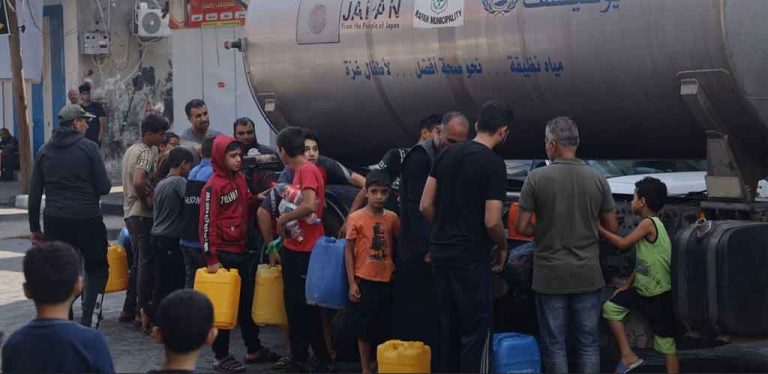The workers are awaiting authorization to take supplies to the Palestinian population in the enclave, according to a press release issued by the agency.
Since last Saturday, three thousand tons have been waiting at the Rafah border crossing between Egypt and Gaza, but until Wednesday the Israeli authorities had not given the green light.
The Egyptian government announced that the agreement was reached after a call between the Egyptian president, Abdel Fattah El-Sisi, and the US president, Joe Biden, who visited Israel yesterday to show his support for the war campaign against the coastal enclave.
The pact will allow an initial 20 trucks to enter the Strip from the Rafah crossing, although the UN humanitarian coordinator, Martin Griffiths, stated the day before that at least 100 trucks per day are needed.
For his part, the director general of the World Health Organization, Tedros Adhanom Ghebreyesus, welcomed the announcement, recalling that many lives depend on the arrival of these supplies.
The people of Gaza are facing an increasingly complex situation following Israel’s total blockade of the area, which is keeping the enclave increasingly food insecure and with a health system on the verge of collapse.
The Strip has also been without electricity since October 11 and its population barely has access to drinking water.
The UN Relief and Works Agency for Palestine Refugees in the Near East (Unrwa) warned that people are consuming the vital liquid from unsafe sources ‘at risk of death and putting the population at risk of outbreaks of infectious diseases’. Around one million people, about half of Gaza’s population, have been displaced since the start of the conflict, while more than half a million have taken shelter in Unrwa facilities.
ef/abo/mgt/ebr










